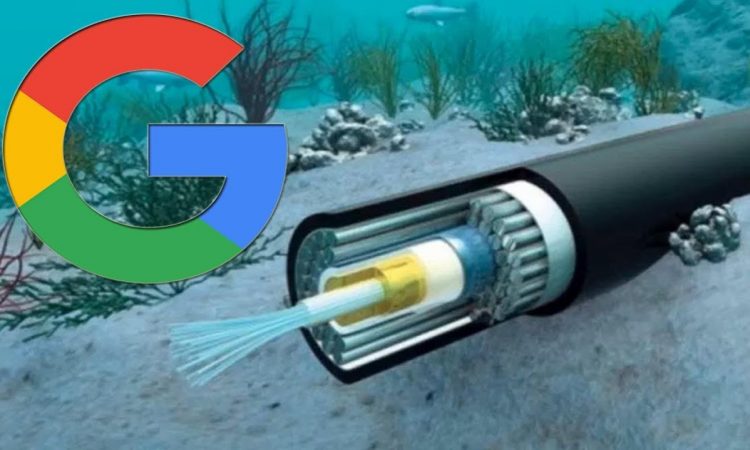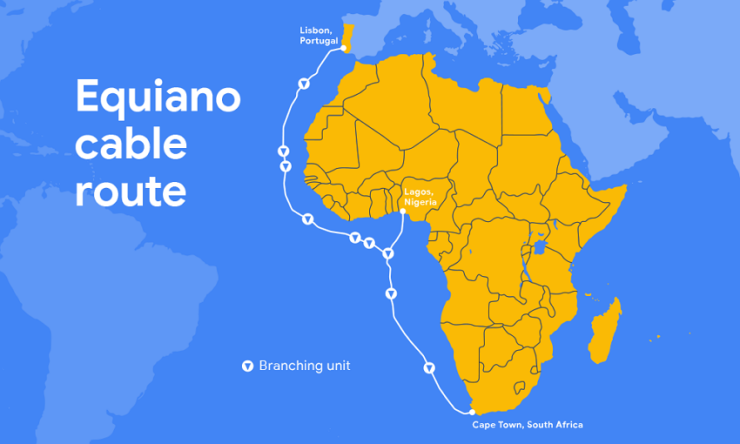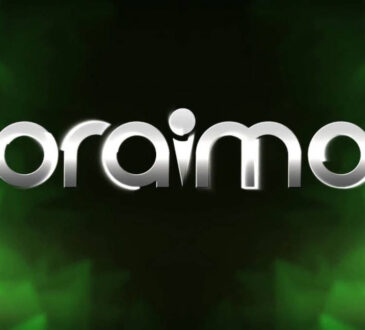
American technology giant, Google, has announced the arrival of its subsea cable, Equiano, in Lagos, Nigeria.
The submarine cable which is landing in the second city in Africa is expected to improve broadband penetration, and quality of service as well as advance the digital economy in Nigeria by 2025.
This was made known in a note by Google’s West Africa Director, Juliet Ehimuan-Chiazor, where he said that the cable landed in Lagos today, making it its second successful landing in Africa after it reached Togo last month.

The cable, named after Olaudah Equiano, a Nigerian-born writer and abolitionist, is among the first in a series of landings in Africa for the subsea cable and is expected to run from Portugal along Africa’s west coast to South Africa.
What the West Africa Director for Google is saying
Ehimuan in the note said, “Nigeria is sub-Saharan Africa’s largest economy. Still, the share of people using the internet stood at approximately 35% as of 2020 – double what it was in 2012. Across much of the country, people lack affordable, reliable & quality access, which limits their ability to benefit from, and contribute to, the digital economy.
“Since 2017, the Nigerian government has been actively working on its digital transformation programs as part of plans to grow its domestic sectors.
“These initiatives have proven pivotal to the success of many industries in the country, especially the start-up space. In the last five years, start-ups in Nigeria have produced five unicorns (start-ups valued at over a billion dollars). Businesses are also benefiting significantly from the usage of internet platforms, with total e-commerce annual expenditure predicted to climb to $75 billion by 2025, up from its current projection of US $12 billion.
“Though a great deal of progress has been made, studies suggest that faster internet connections, better user experiences, and reduced internet costs will help accelerate these benefits.
“Landing this cable comes as part of critical stages leading up to its deployment later this year, and it is expected to deliver up to 20 times more capacity than the region’s prior cables. We’ve worked with established partners and in-country experts to ensure that Equiano has the greatest potential effect in Nigeria and throughout Africa.
“A recent economic impact assessment conducted by Africa Practice and Genesis Analytics states that Equiano’s arrival in Nigeria is expected to result in faster internet speeds and significantly improve people’s experiences while online. Internet speeds in Nigeria are expected to grow almost sixfold by 2025, and retail internet prices are forecasted to decline by 21% over the same period. The same study found that by 2025, real GDP in Nigeria is forecast to be USD 10.1 billion higher than it otherwise would have been without Equiano and that the cable would indirectly generate roughly 1.6 million new jobs between 2022 and 2025.
“We are partnering with multiple key telecom players, including our landing party, the West Indian Ocean Cable Company (WIOCC), where Equiano lands to ensure that the cable can reach more businesses and end users across Nigeria and the African continent more broadly
“With Equiano, we look forward to being an even more integral part of the digital transformation journey in Nigeria.”
Recall that last month, the subsea cable landed in Togo, and it is expected to run from Portugal along the West Coast of Africa connecting Europe to Togo, Nigeria, Namibia, South Africa, and Saint. Helena.
Google had earlier announced that it would work with the Nigerian Communications Commission (NCC) to drive national targets for ubiquitous broadband access.
The Executive Vice Chairman and Chief Executive Officer (EVC/CEO) of NCC, Professor Umar Garba Danbatta said that Equiano will reduce the cost of retail data in the country, adding that the partnership would speed up the digital economy and commitment to improving national security targets of the country through technological advancement.




